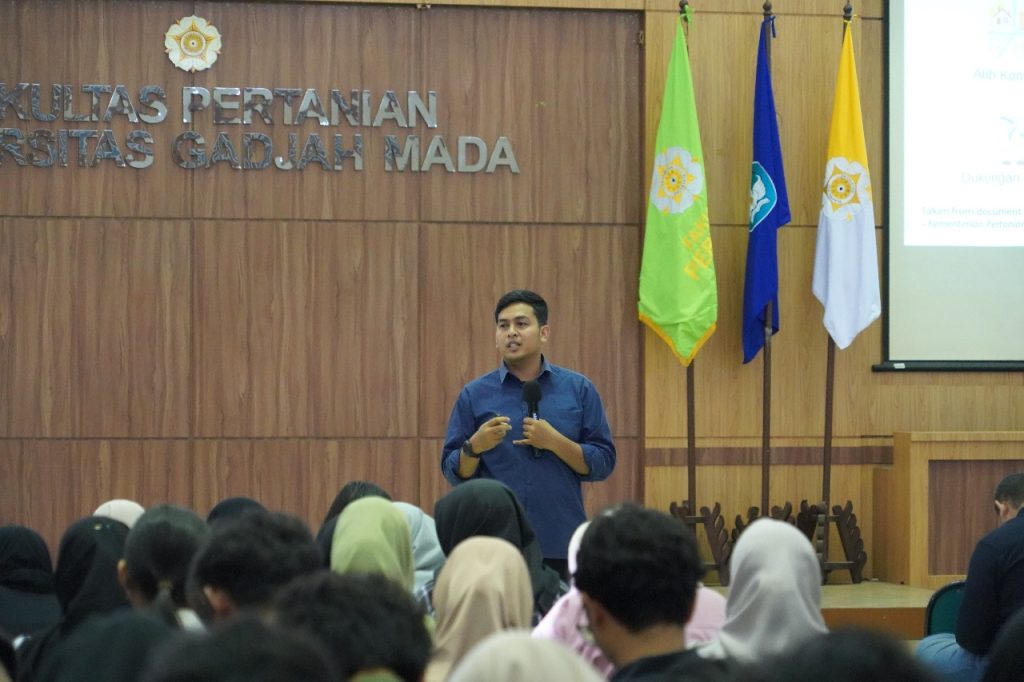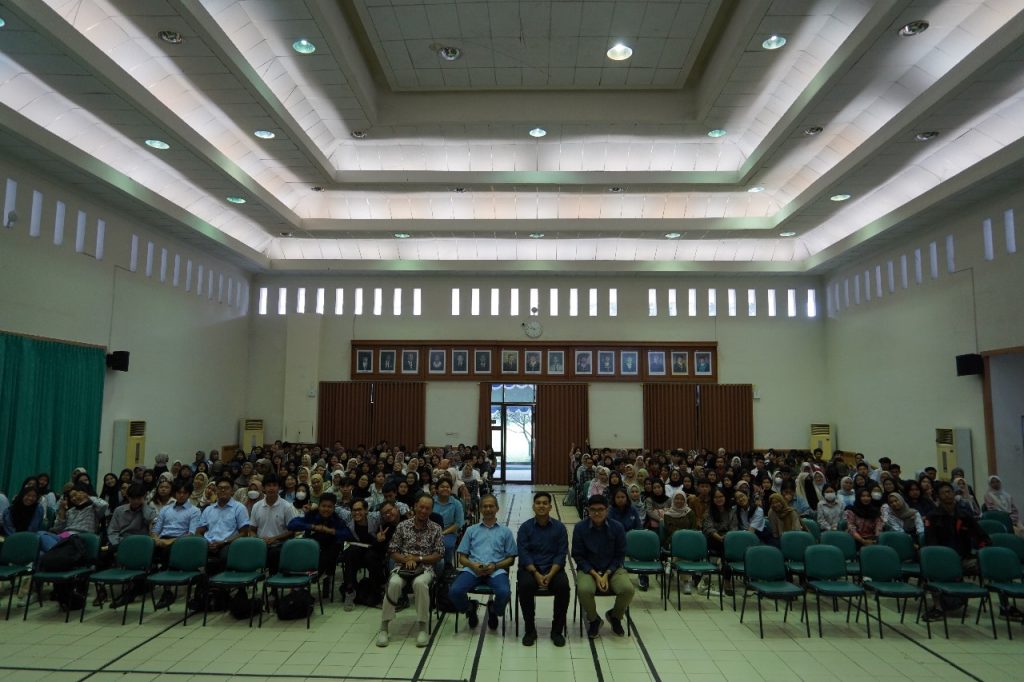
On Monday, 18 November, 2024, the Faculty of Agriculture at Universitas Gadjah Mada (Faperta UGM) held a public lecture for the “Introduction to Agricultural Science” (PIP) course at the Prof. Harjono Danoesastro Auditorium. The guest lecture featured Yosef Adhitya Duta Dewangga, Founder & CEO of PT. Inamas Sintesis Teknologi (INASTEK), known as Duta, who presented the topic “Plant Factory with Artificial Lighting (PFAL) Blockchain.” The session was attended by students of the Faculty of Agriculture.
During the lecture, Duta provided an overview of globalization and the shift in industry—from traditional societies to modern ones that rely on internet and information technology. He explained the evolution of industry from era 1.0 to 4.0, and how we are now transitioning into era 5.0. This era marks the transformation from an information society (4.0) to a Society 5.0, where technologies like Blockchain become key components.

“Simply put, blockchain is like a ledger,” explained Duta. “If we have big data, in traditional information systems the data can still be altered by the admin. But with blockchain, the data can’t be changed by anyone because it forms a chain that can’t be tampered with. For example, in the cultivation process, if we claim to be pesticide-free but actually use pesticides in the field, the retail side or end consumer will find out. The data can’t be manipulated.”
Duta emphasized the importance of recognizing opportunities in agriculture amid the Fourth Industrial Revolution. He noted that major technologies like big data, cloud computing, and IoT have started to penetrate agriculture. These changes bring about numerous innovations, especially through controlled environments such as glasshouses, greenhouses, and the plant factory with artificial lighting (PFAL).
Plant Factory with Artificial Lighting (PFAL) is the most advanced form of Controlled Environment Agriculture (CEA). It is a plant production system that operates in a fully controlled environment. PFAL employs multi-tiered rack designs with artificial lighting and environmental control equipment for regulating temperature, humidity, and nutrients. This technology enables efficient and optimal crop production regardless of external conditions, making it suitable for areas with limited land or extreme climates.
Furthermore, Duta encouraged students to explore opportunities in modern agriculture. While many farming practices are now ecologically inclined, the greatest challenge lies in how this information is effectively communicated and accepted by the wider public. With ever-evolving technologies and innovations, the agricultural revolution 4.0 opens up broader opportunities to develop more efficient and eco-friendly solutions.
One of the PIP course lecturers, Dr. Ir. Witjaksono, M.Sc., added a message for the students. “We are now heading into the Society 5.0 Era, where we must be able to collaborate with other sectors, such as engineering. The major challenge for the future of agriculture—integrating technology and optimizing its use—is now on your shoulders. Our hope is that collaboration between agriculture and technology will lead to more advanced research and address the diverse challenges of the future,” said Witjaksono.
This guest lecture provided students with a valuable opportunity to deepen their understanding of digital transformation in the agricultural sector and how they can actively contribute to innovation for a more sustainable future. It is also part of efforts to achieve the SDGs, including SDG 1: No Poverty, SDG 2: Zero Hunger, SDG 3: Good Health and Well-being, SDG 4: Quality Education, and SDG 17: Partnerships for the Goals.
Writer: Agrit Kirana Bunda
Editor: Desi Utami
